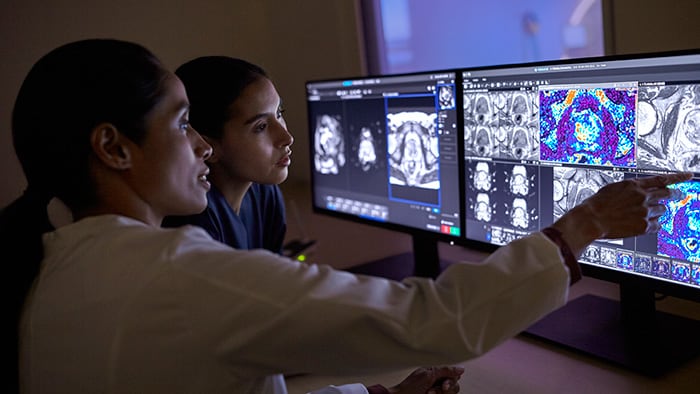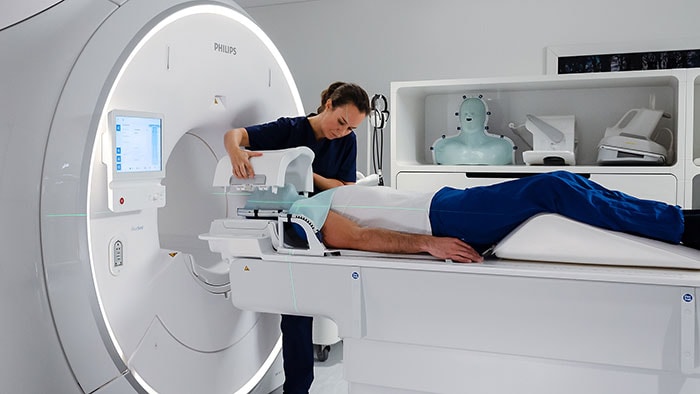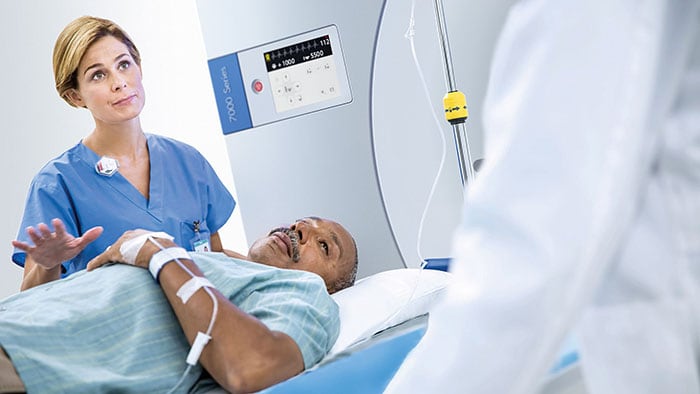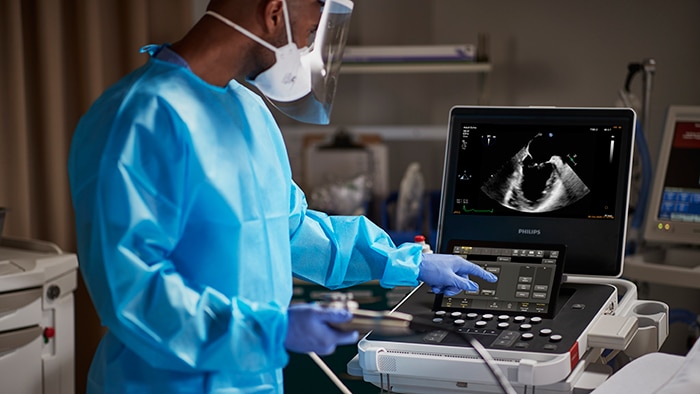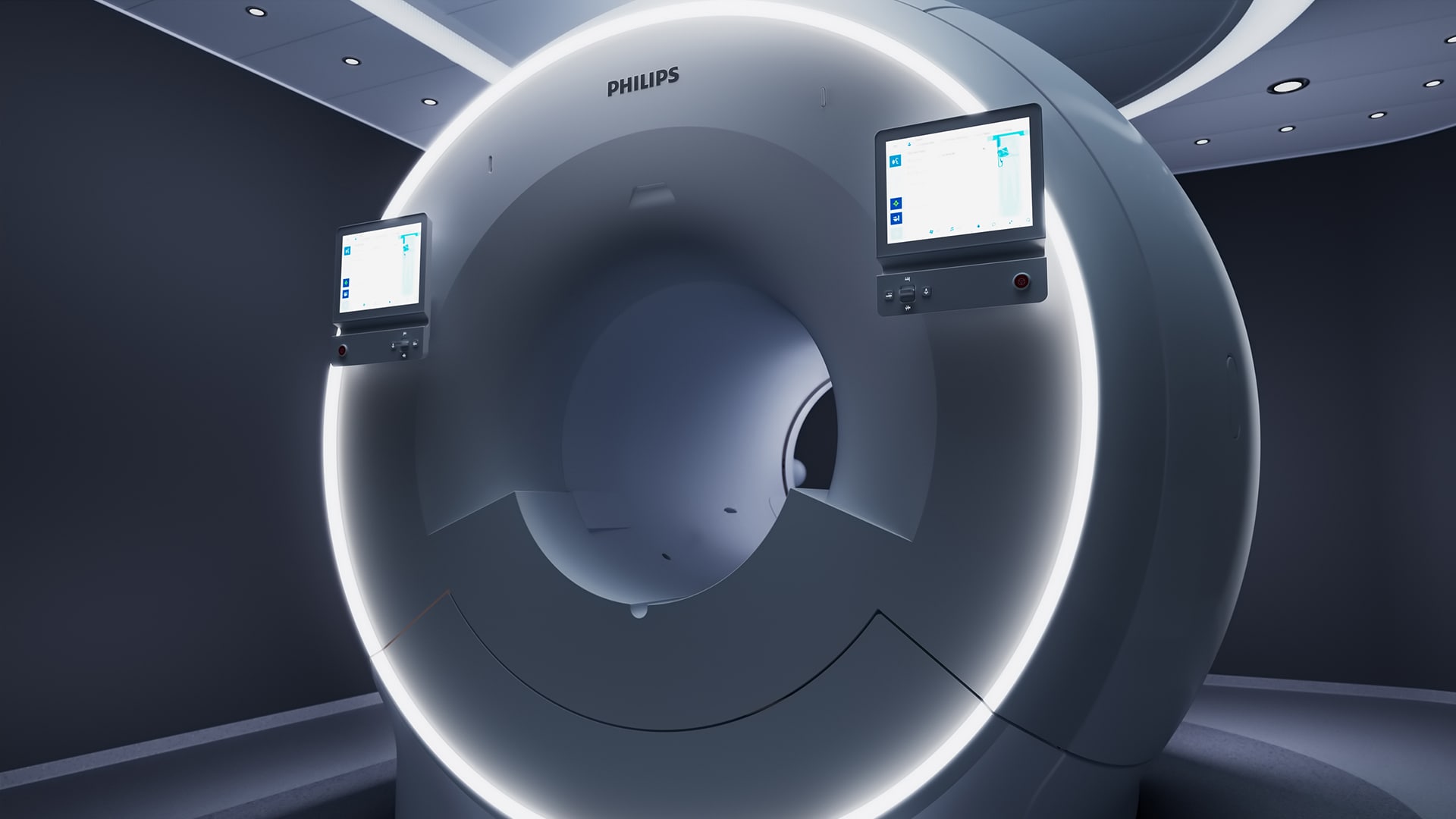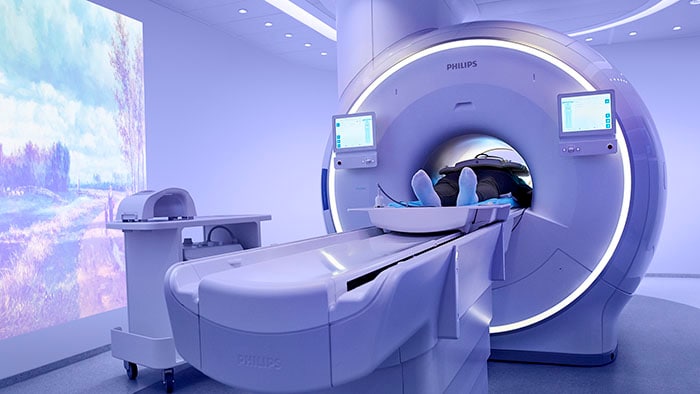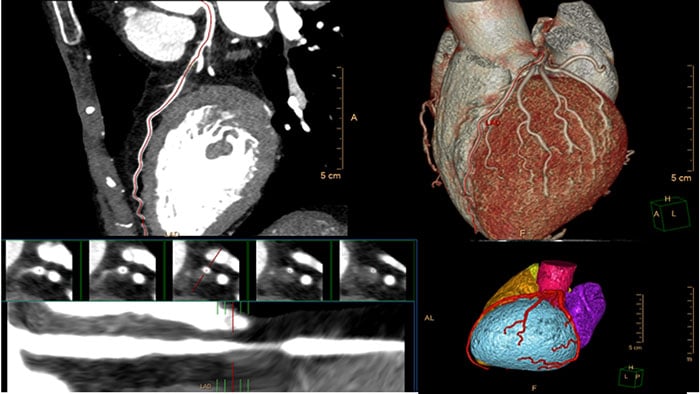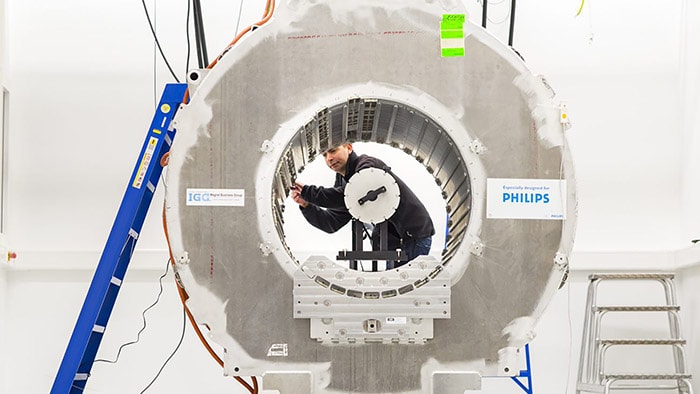It’s not surprising that informatics healthcare leaders, with their day-to-day lives steeped in data, would be at the forefront of applying artificial intelligence (AI) and predictive analytics to address healthcare challenges. Indeed, an analysis of responses to Philips’ Future Health Index 2022 - an independent survey of almost 3,000 healthcare leaders across 15 countries - reveals growing trust in AI and predictive analytics among this important group. However, the report also reveals that despite growing trust among informatics leaders, radiology leaders are the true early adopters of advanced analytics technologies. Ever since digital PACS (Picture Archiving and Communication Systems) were introduced around 30 years ago, radiology departments have been amassing huge amounts of known-outcome medical imaging data, much of it already quantitative or retrospectively quantifiable. What better data set to train AI and predictive analytics algorithms on.
Almost a third (31%) of the radiology healthcare leaders surveyed stated they had already adopted predictive analytics, compared to the global average for all healthcare leaders surveyed of less than a quarter (24%). In fact, nearly 4 out of 5 (82%) believe predictive analytics can have a positive impact on health outcomes overall, with around three quarters believing it could positively impact population health management (76%) and health equality (76%). In addition to these patient benefits, three-quarters (75%) reported that predictive analytics can also positively impact the healthcare staff experience. Faced with ever-increasing demand to deliver better and faster diagnoses in the face of a world shortage of skilled radiologists, that could be an important benefit in terms of staff retention.
A positive experience but with reservations
As early adopters, radiology healthcare leaders’ initial experience of predictive analytics appears to have been positive. More than three quarters (79%) stated that they trust the technology in clinical settings, with a similar proportion (75%) stating they trust it in operational settings. Like other healthcare leaders, 29% of those surveyed indicated that improved data privacy and security protocols, and better regulation of privacy and security in clinical applications, would increase trust even further. Nearly one-third (31%) expressed a desire to know what goes on ‘inside the box’ in terms of transparency about how insights and recommendations derived from predictive analytics are determined.
The good news is, 76% of radiology leaders surveyed appear to have confidence in the accuracy of their data and in their facility’s ability to extract insights from it (77%).
Chief Business Leader of Precision Diagnosis at Philips
Kees Wesdorp
“The good news is, 76% of radiology leaders surveyed appear to have confidence in the accuracy of their data and in their facility’s ability to extract insights from it (77%). The bad news is, one of the biggest challenges facing radiology leaders appears to be managing the sheer volume of data available to them, with nearly a quarter (24%) citing it as their top data-related issue.” – Kees Wesdorp, Chief Business Leader of Precision Diagnosis at Philips
It’s no surprise then that almost two-thirds (65%) indicated that their staff are overwhelmed by the amount of data available to them, more than leaders in informatics (59%) and cardiology (55%). Other barriers to the optimal use of data included technology infrastructure, staff resistance to technology upgrades, lack of staff knowledge about how to use the data, and data policy and regulations; many of which are common with their peers in informatics and cardiology. When it comes to rectifying these issues, radiology leaders are more likely (35% of those surveyed) than both the global average (27%) and informatics leaders (21%) to cite specialized healthcare management consulting services as one possible solution, suggesting that data utilization in radiology may benefit from specialized consulting services with a health technology company. Other solutions cited were collaborations with academic institutions, health insurance companies, and other hospitals or healthcare facilities.
Driving productivity in the face of increased demand
In terms of their overall priorities, increasing the level of care and driving radiology department efficiency are top of mind. Nearly one-third (30%) of the radiology healthcare leaders surveyed said being at the forefront of care delivery was their top priority, while almost as many (27%) said that driving efficiency within their facility was a priority. Early adoption of predictive analytics to help address these priorities is a clear indication of their belief in digital solutions.
More than half (53%) of radiology leaders surveyed said they are currently investing in AI, with roughly the same proportion currently investing in digital health records (50%) or electronic medical records (EMR), and only a slightly smaller fraction investing in telehealth (48%). The number investing in digital health records (50%) is significantly more than the global average (39%) for all healthcare leaders surveyed, and higher than the figure for informatics healthcare leaders (32%), indicating radiology leaders view the EMR as essential for achieving their goals.
AI appears to be the next logical step. Asked whether they would be investing in these areas in three years’ time, the number planning to invest in digital health records dropped to 31%, yet the number planning to invest in AI jumped from 53% to 75%.
Retaining staff
When it comes to staff satisfaction and retention, radiology leaders were roughly in line with other healthcare leaders in saying it is one of their main priorities. Almost a third (29%) said it was one of their priorities, the global average for all healthcare leaders surveyed being 30%. They also indicated that improving staff satisfaction and retention is a challenge that’s not going away anytime soon. Around a quarter (24%) thought it would remain one of their top priorities in three years’ time.
Addressing inequalities
As they come out of the COVID-19 pandemic, addressing healthcare inequalities is also a high priority for radiology leaders, with nearly two thirds (63%) indicating they already have or are developing initiatives to solve health inequalities. As mentioned earlier, it’s one of the areas where they believe predictive analytics could play an important role - a view expressed by over three quarters (76%) of the radiology leaders surveyed.
Now in its seventh year, the Future Health Index 2022 report, based on proprietary research from nearly 3,000 respondents conducted across 15 countries, explores how healthcare leaders are harnessing the power of data and digital technology as they look to address their key challenges coming out of the COVID-19 pandemic. Visit the Future Health Index site for more information on this year’s data and to download a copy of the Future Health Index (FHI) 2022 report: ‘Healthcare hits reset: Priorities shift as healthcare leaders navigate a changed world’.
Philips will present the latest FHI 2022 Global Report results impacting radiologists at the European Congress of Radiology (ECR). Join Philips in the Philips Zone at ECR 2022 (Level 2 Foyer C of the Austria Center), July 13-17, 2022, in Vienna, Austria, and visit Philips at ECR 2022 for more information on Philips’ AI-powered Precision Diagnosis suite of solutions, featuring smart connected imaging systems and integrated radiology workflow solutions, designed to increase diagnostic confidence and clinical outcomes.
Share on social media
Topics
Contact

Kathy O'Reilly
Philips Global Press Office Tel.: +1 978-221-8919
You are about to visit a Philips global content page
Continue


